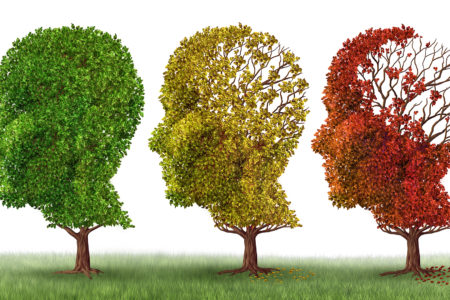
When complex and controversial draft legislation is processed rapidly, significant potential implications of the bill – and any amendments made to it – can be missed. Unfortunately, this is precisely what happened with the federal government’s Bill C-14 to establish the federal rules regarding medical assistance in dying (MAID) in Canada. The legislation was introduced on April 14, 2016 and came into force on June 17, 2016.
Many, many amendments were considered and, unsurprisingly, most of the attention was focused on the most obviously controversial amendments — particularly on the unsuccessful attempts to allow access to MAID beyond only those individuals whose “natural death has become reasonably foreseeable.”
By contrast, another amendment received very little attention before being passed — a mere 10 minutes out of many hours of debate. Yet this amendment created the potential for extended intolerable suffering.
Pre-amendment, the draft legislation set out that
241.2(3) Before a medical practitioner or nurse practitioner provides a person with medical assistance in dying, the medical practitioner or nurse practitioner must…
(b) ensure that the person’s request for medical assistance in dying was…
(ii) signed and dated after the person was informed by a medical practitioner or nurse practitioner that the person’s natural death has become reasonably foreseeable, taking into account all of their medical circumstances;
The final version of the legislation, though, sets out that
241.2(3) Before a medical practitioner or nurse practitioner provides a person with medical assistance in dying, the medical practitioner or nurse practitioner must…
(b) ensure that the person’s request for medical assistance in dying was…
(ii) signed and dated after the person was informed by a medical practitioner or nurse practitioner that the person has a grievous and irremediable medical condition;
A grievous and irremediable medical condition is defined in the legislation as
241.2(2) A person has a grievous and irremediable medical condition only if they meet all of the following criteria:
(a) they have a serious and incurable illness, disease or disability;
(b) they are in an advanced state of irreversible decline in capability;
(c) that illness, disease or disability or that state of decline causes them enduring physical or psychological suffering that is intolerable to them and that cannot be relieved under conditions that they consider acceptable; and
(d) their natural death has become reasonably foreseeable, taking into account all of their medical circumstances, without a prognosis necessarily having been made as to the specific length of time that they have remaining.
The draft legislation established that a person could make a request for MAiD after having been informed that their natural death had become reasonably foreseeable. That is a single criterion.
The final version of the legislation, however, establishes that a person cannot make a request for MAiD until they have been informed that they have a grievous and irremediable medical condition, and meet all four elements of “grievous and irremediable medical condition” have been met — including that the person is experiencing enduring and intolerable suffering.
Why does this amendment matter? It matters because, under the legislation, there is a mandatory waiting period between the day on which the request is signed and the day on which MAID can be provided as:
241.2(3) Before a medical practitioner or nurse practitioner provides a person with medical assistance in dying, the medical practitioner or nurse practitioner must
…
(g) ensure that there are at least 10 clear days between the day on which the request was signed by or on behalf of the person and the day on which the medical assistance in dying is provided or — if they and the other medical practitioner or nurse practitioner referred to in paragraph (e) are both of the opinion that the person’s death, or the loss of their capacity to provide informed consent, is imminent — any shorter period that the first medical practitioner or nurse practitioner considers appropriate in the circumstances;
This means that a person must first reach the point of enduring and intolerable suffering and only then can they make the request for MAiD—and only then can the 10-day clock start.
Under the draft legislation, the person could not make a request (and start their 10-day clock) until after they had been informed that their natural death had become reasonably foreseeable. However, the clock could start before their suffering had become intolerable. While they could not receive MAiD until their suffering had become intolerable, they were not condemned to wait a minimum of 10 days after the onset of intolerable suffering before MAiD could be provided.
Why was this amendment made? At the May 10, 2016 meeting of the House of Commons Standing Committee on Justice and Human Rights, Bloc Québécois MP Louis Plamondon introduced the amendment (on behalf of Bloc Québécois MP Luc Thériault with the following explanation:
I’ll introduce the amendment very quickly. I think everyone’s read it and discussed it given that you’re preparing to substitute it for amendment PV-5. After reading the Barreau du Québec’s submission, we decided to propose this amendment. Given that the Carter decision would inevitably give rise to legal challenges, I believe our amendment is entirely appropriate. Thank you, Mr. Chair.
There are two problems with the explanation Plamondon gave to the committee.
First, the Barreau du Québec’s submission did not advocate for this amendment. Rather, the Barreau called for the removal of the narrow, four-part definition of “grievous and irremediable medical condition.” It argued that s. 241.2(2) is inconsistent with the Carter decision, which struck down the Criminal Code prohibitions on MAID, and with the Charter of Rights and Freedoms, and should be removed.
Had this happened, there would have been no problem with the amendment at issue here. A person would still not have been able to sign their request for MAID until they had been informed that they had a grievous and irremediable medical condition; however, that would not have required that their suffering already be intolerable and would not have extended this suffering by a minimum of 10 days.
Second, there is no indication that this amendment’s practical consequence (imposing a minimum additional 10 days of intolerable suffering) was contemplated by the members of the committee voting on the amendment. One can hope that they would not have adopted the amendment had they been alerted to this consequence.
Now that the consequence has been identified, the legislation should be amended. Otherwise, what was a presumably inadvertent imposition of 10 additional days of intolerable suffering will become undeniably intentional. And that would be remediable cruelty.
Photo: Shutterstock, by Joyce Nelson
Do you have something to say about the article you just read? Be part of the Policy Options discussion, and send in your own submission. Here is a link on how to do it. | Souhaitez-vous réagir à cet article ? Joignez-vous aux débats d’Options politiques et soumettez-nous votre texte en suivant ces directives.








